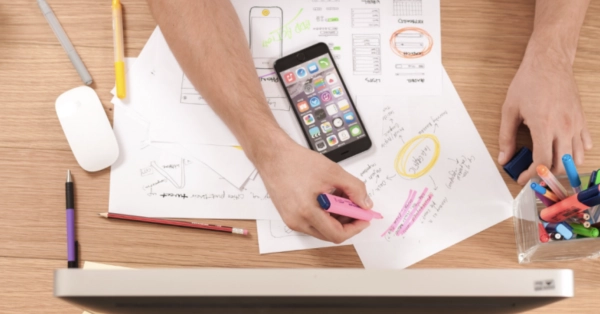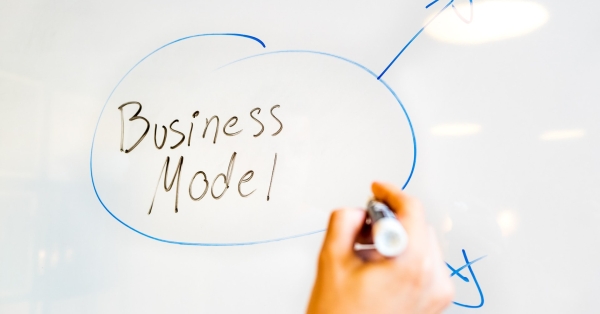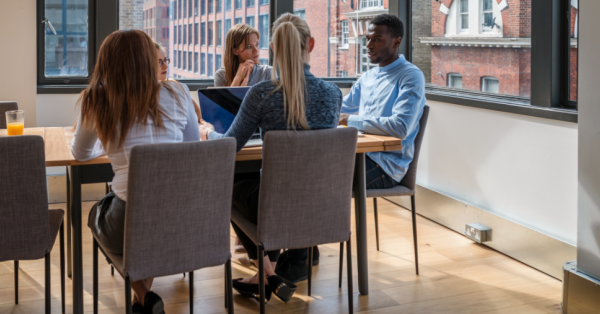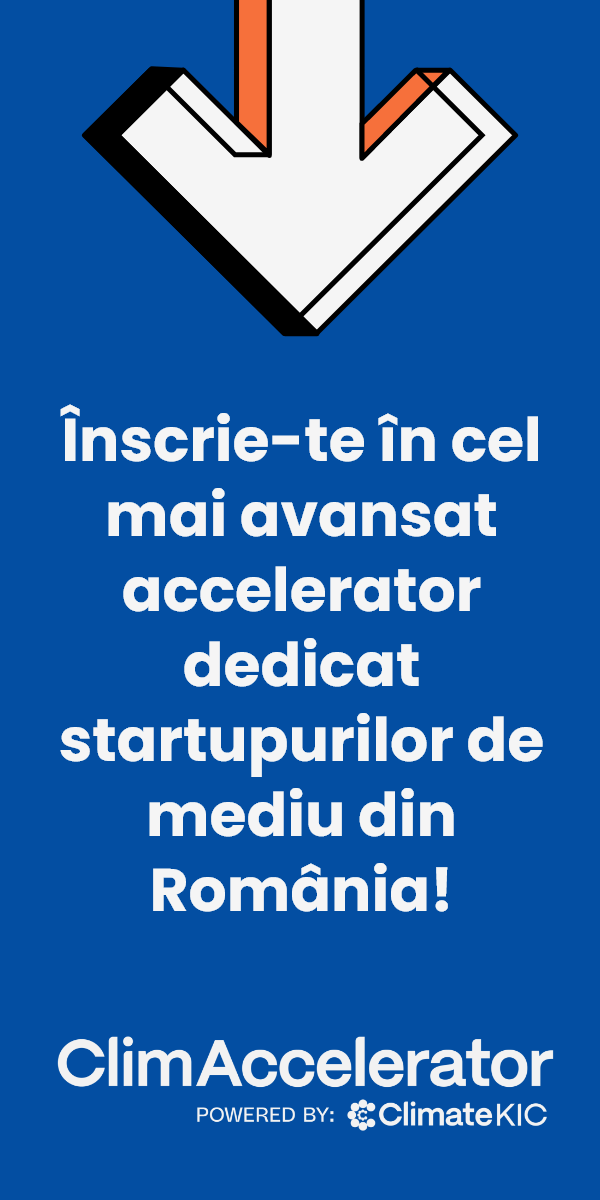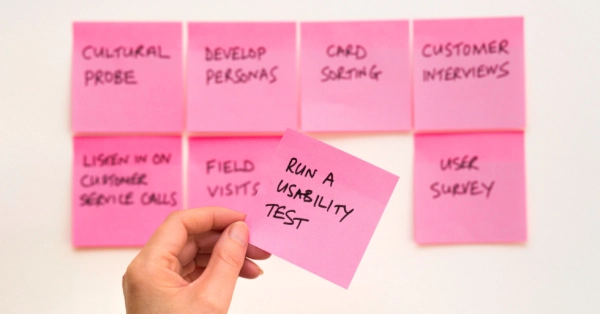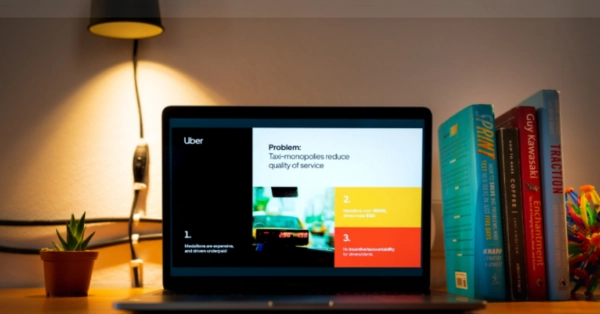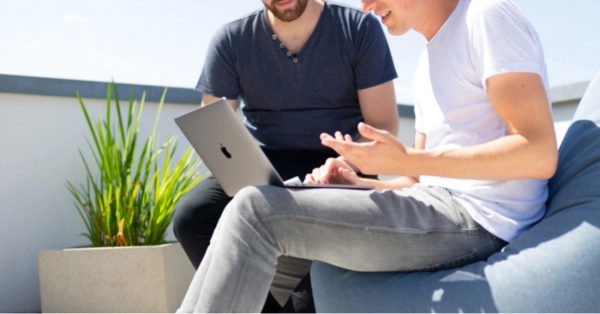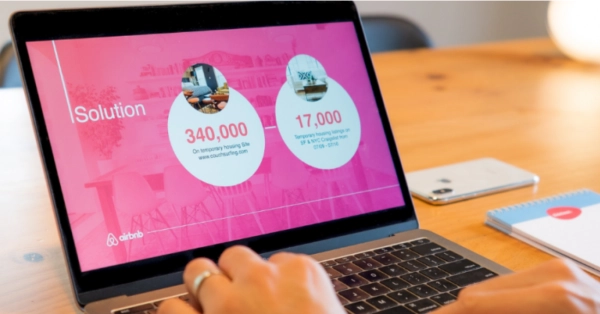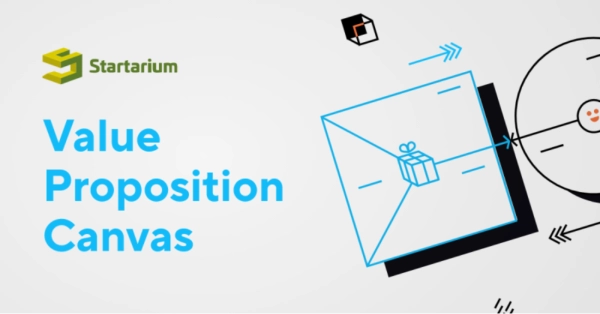How do you know you've reached the product-market fit? How do you get back to it if the market changes? The founders of 6 local businesses, with different business models, from various industries, who have passed gone or are currently going through the validation process, talked to us about it.

Are you curious what the road from idea to product-market fit looks like for other local businesses? Below you can discover insights from the founders of 6 local businesses and the most important moments in the lives of their companies.
Impact Hub Bucharest
In 2012, the first IHB venue was opened in Unirii area. Before the opening, in 2011, they tested and validated the demand for co-working spaces in a very small venue located in the Old Town of Bucharest with a few clients. At that time, there were not many investors or organizations willing to support entrepreneurs. You had to start from 0, Vlad Craioveanu says.
Only friends and acquaintances were invited at the first presentation of the venue (which had not been furnished yet). 160 people came that evening.
-
70 people purchased pre-opening subscriptions as a form of support. About 60% of them continued to use the venue afterwards.
-
Even though people were excited about the idea, not all of them ended up buying subscriptions afterwards - so the number of members dropped after the initial stage.
-
In the beginning the biggest challenges were related to the renewal of the subscriptions and setting the right price for the services.
-
In order to cover the deficit of subscriptions, they decided to change the approach a little and started renting the space for events (workshops, conferences, etc.).
-
A big factor that helped with the product-market fit was the fact that they had a community even before the venue was opened - and that was something the team worked hard on.
-
With services like those offered by IHB, the main challenge is not to get customers, but to keep them coming back.
Your first customers are your first ambassadors. They are the ones who will talk about you and give the first real feedback.
In 2017, IHB opened its first venue outside Bucharest, in Cluj: "We wanted to expand, to scale up the Bucharest model to another geographical area. The Bucharest venue had reached a certain maturity, it was working (...) but we were not sufficiently well prepared to manage a business remotely", Vlad says. Therefore, even if they had reached a product-market fit on the Bucharest market, this did not mean that it was also true for Cluj. Moreover, "Our business is 100% about human relations, being close to the entrepreneurs was very important", he adds.
Vlad's recommendations:
-
"Don't put all your eggs in one basket" - it's better to have several business verticals (not only similar products), consumption moments, consumer types, so that you can get through difficult times more easily.
-
For IHB, this diversification consisted in the inauguration of event venues, the development of the content area (programs and platforms part of the entrepreneurial ecosystem) and the development of team offices (originally in the 3House spin-off, a space built for a new type of consumer, with a team different than the original one of Impact Hub, for a different mindset. Later on, 3House merged with Impact Hub).
-
Pay attention to the market trends, behavioral changes - they can influence your business strategy.
About Impact Hub Bucharest
Impact Hub is an organization that supports the entrepreneurial development of initiatives with a positive impact on society within a global community. Here you will find collaborative workspaces, business development and incubation programs, conferences and events, as well as crowdfunding options. Present in Bucharest since 2012, the organization is part of the global Impact Hub network, present in over 100 venues on 5 continents.
To date, Impact Hub has hosted over 1900 members in the co-working spaces of its 3 venues: Timpuri Noi, Universitate, Floreasca, more than 4600 online and offline business events and worked with more than 500 startups in the developed business incubators. Last year it obtained an investment of 2 million euros from Autonom, and this year it celebrates it’s 8th anniversary years as of its incorporation.
Lifebox
Lifebox in a nutshell: it is a food delivery platform dedicated to people who adopt a healthy lifestyle, which delivers a box with the 5 meals of the day - breakfast, lunch, dinner and two snacks - to your home every day, the calories of every "box" being calculated in a customized way so as to suit your lifestyle. We work with a very passionate chef who is by our side every step of the way, and with a nutritionist with whom we consult every time, on every ingredient we use, says Radu Bălăceanu, co-founder.
2017 was the year we officially launched LifeBox and won 2nd place at Startarium PitchDay. The 20,000 euros prize that we won was invested in the launch of the LifeBox Green project, through which people can recycle used plastic, paper and cardboard. That was also the moment when we exceeded 100 orders per day and when the "crazy days" started for us.
-
When we took our first steps we were anxious, did multiple validations of the product on the market, to be able to realize how useful it actually was. We are grateful to the entire community of entrepreneurs that we had around us that supported our business and not only believed in our idea, but also helped us a lot with the promotion.
-
We started with 30 orders per day, and soon reached 100 orders, and that meant extra time spent in production, a lot of tension, but also adrenaline mixed with gratitude, all of which proving to us how well this product caught on. I think that the days when we didn't get very many hours of sleep just to make sure that everything runs smoothly the following days are the ones which brought us the most validation.
Radus's recommendations:
-
We admit that we made a lot of mistakes in the beginning - with the production, with the deliveries, which is not necessarily a bad thing, because in the beginning you have to test some things to see whether they work or not.
-
We recommend paying close attention to all types of costs – we faced some hidden costs that we hadn't anticipated and thought they would be covered once we scale-up.
-
And what we also realized was that not all the signals you receive before launching a product are correct, not all the public will understand from the very beginning the added value a product brings, and you will have a lot to learn, obviously.
About the expansion of LifeBox
-
We managed to launch in two more cities without having all the pieces of the puzzle and without being prepared for that, which is why we gave up on those two markets pretty quickly.
-
We had reached losses and extra costs that we could not afford or cover; moreover, the emotional investment was actually the one that gave us the biggest headaches when we launched a product we believed in a lot, but which required a lot of resources.
-
Resources that we could have used more efficiently in Bucharest and Cluj to grow where we were already in business and did quite well.
2017 vs. 2020 for LifeBox
-
We ended 2017 with a turnover of 500,000 euros
-
In 2018, the company reached a turnover of 1.5 million euros. LifeBox has a team of 60 people, over 15,000 thousand unique customers in 3 cities and its turnover increased by 60% compared to 2018.
-
In 2019 we reached 1000 orders per day. In the future, we want to go international, but it remains to be seen how we could do this and if it will be possible.
About LifeBox
LifeBox.ro is a food delivery platform dedicated to people who adopt a healthy lifestyle. The company basically delivers a box with the 5 meals of the day - breakfast, lunch, dinner and two snacks - to your home every day, the calories of every "box" being calculated in a customized way so as to suit your lifestyle. LifeBox has 3 founding members, all with experience in the food and online industry.
Ecotree
Ecotree is a unique digital platform that fundamentally revolutionizes and accelerates the way in which waste recycling is carried out and monetized, regardless of the type, quantity or origin of such waste (companies or households). It facilitates the direct generator-collector contact and proposes a business model inspired by the collaborative economy principles.
The road from idea to business
-
Our original plan to "change" the world in which recycling is concerned was pretty much overturned by a series of obstacles.
-
Many times, you need to pivot and reorient yourself, especially when you realize that what you had planned does not fit the market and throws all your plans upside down, so we “toned it down a notch" and decided not to be as disruptive as we had originally intended and rather adapted to what already existed on the market.
-
Unlike other fields, things are a little more different in waste management/recycling in terms of monetization, for example, since your supplier can also be your customer and your customer can also be your supplier, because, depending on the value of the waste, you can sell it or buy a collection service. This is precisely why the monetization part becomes more complicated.
The customer discovery process
Although it may seem like a rather closed industry, it is not really like that, as those who work in this field are open and want to contribute with all their resources, but there are some factors and all kinds of external obstacles that they are not aware of.
This is where our added value comes in, where we help the collectors, on the one hand, to overcome such obstacles and develop, to increase their revenue at the end of the day, and, on the other hand, we want to help the companies that produce a lot of waste because most of the time they are not aware of this environmental component and we want to make this process much easier for them.
Tracked metrics - We are currently tracking the number of users and overall engagement, along with the conversion rate of leads into opportunities and of opportunities into contracts. We are already at the stage where we are closing some partnerships for extensive testing.
All about MVPs (minimum viable product): We took it one step at the time and found ourselves in several stages of validation, we did not follow a specific "recipe". I think it is safe for me to say that we are still in a validation stage and even after the launch I had the same impression, because this market is quite dynamic. We didn't have a specific moment when we came to a decision because we always end up changing something and end up with another MVP.
Seedblink equity crowdfunding campaign
We managed to attract investments of 220,000 euros on this platform, which was another way of validation for us. We had to achieve several metrics in several areas in order to be eligible and "investable" on the platform, including in areas related to development, team, strategy, positioning and business model. One of the metrics also referred to the market fit and feedback area, and how well this feedback is translated into measurable metrics, things we already had before resorting to this platform.
R-create
R-Create is a returnable packaging, created as an alternative to the disposable packaging used for online ordered packages. We have first tested and validated this service as a pilot project in partnership with Cărturesti bookstore chain, FAN Courier and Sinapseria.
After we launched with Cărturesți we received many requests from various online stores, which brought us closer to the question we had related to how relevant this type of service is and how many customers we can bring in without investing in advertising. Things went well for us, as people understood our idea and the need for this new type of service on the market.
How does R-Create work: The products are brought to the customer by the courier in their primary packaging and packed in the R-Create returnable packaging. The customer unseals the package, takes the product and hands the returnable packaging back to the courier.
How was R-create born
-
We have been working on this business idea ever since we won the award for the best idea in the field of recycling at the ReUse Hub accelerator organized by Impact Hub and PepsiCo, and then we tested it on the market.
-
It was not easy to convince our potential partners to support this idea - and we even managed to "lose" some of our original partners along the way because we complicated the process a lot with everything we wanted to do, so we decided to do things more practical, and presented to the potential partners exactly what they could gain from this type of business.
-
For courier companies, things are relatively simple, as they earn extra money from the return service, but we had to take things to another level and sought to present some other advantages to the managers.
-
The main reason for which we approached Cărturesți was the fact that, in our opinion, it best fits our target customers and they are willing to increase awareness regarding reusable and eco-friendly packaging, not just the idea of online shopping.
The challenges of this type of business
I realized first of all that not everything is simple to solve and clearly it cannot be ready in a day. As a startup, on the one hand, you have to be open, don't get emotionally attached to anything, and listen carefully to what a specialist has to say.
And on the other hand, you still need to have a vision, even if you are open to the future, because you cannot show up in front of potential investors with an idea that you are not sure how it will look in the future or with the intention of changing it at a certain point in time, because no one will take you seriously.
Also, another challenge you may face if the service becomes widely used and relevant to customers, is that it can be very easily copied, something we want to avoid. That's why we would like to further grow the community through a subscription service in the future, where you pay only once and always have these bags available when you need them. If we reach this level where we grow some databases of valuable customers and not remain at the stage of simple "bag merchants", then it will be a completely different harder to copy business.
Monetization model
After going back and forth at least 5 times so far about this, we've come to the conclusion that the best way to monetize it is through some kind of co-payment: the customer pays a fairly small amount when they receive the products, and the retailer pays an amount similar to what it currently pays anyway, the added value being this contribution to a much more environmentally friendly reality, something that doesn't really happen with many retail companies who are more interested in doing business than being green.
We have avoided the mistake of presenting ourselves as a premium service, because in that way we would have reached only a certain niche of customers, and that was not what we wanted.
How will R-Create evolve: We estimate that this solution will end up replacing over five million single-use packaging annually and, as mentioned, we would like to scale up so that we have some kind of paid annual subscription, for example, where the beneficiary can have these reusable bags at his disposal as often as it needs. We want to grow this community of returning customers, so we have to decide if it’s better to turn to research or use the resources and contacts we currently have.
Linda's recommendations for entrepreneurs
-
My advice for them is to be open, talk to as many people as possible about their ideas and always keep their ears open.
-
Although it is often emotionally very painful to hear someone as they take to pieces an idea you have been thinking about day and night, entrepreneurs must understand that there is always a reason behind any such comment and they must learn to look at things objectively and take feedback from everyone.
-
When you're really down, don't think back only to the bad times you've had, try remembering the good times, as they will keep you going and make you refuse to give up so easily.
Narada
Narada is the first crowdfunding platform for teachers and works as a social business. We started this business with the mission of modernizing education through efficient and fast solutions, and 100% of the profit of the business goes back into research and development of new solutions for modernizing education.
The road from idea to business
-
Our first product was actually a digital classroom platform, but we found it to be a product that was quite difficult to finance and make financially sustainable, so we created a hybrid social entrepreneurship model and oriented it towards a target audience who has money to support it.
-
We’ve had a group of mentors by our side from the beginning, in the form of an advisory board, which helped us a lot, because we saw, from the very beginning, the complexity of the mission and we needed expertise for all the layers, because there were many things that we, as co-founders, had no way of knowing fully.
-
If you can word your idea very easily and you have a mission that "moves" people deeply, then it shouldn't be very difficult for you to get support for that idea and surround yourself with people with expertise who will help you grow.
The need to pivot
We had created a masterclass prototype with recorded courses in which we invested a lot of time and financial resources, but after launching it we realized that we did not have a big enough market to make it either sustainable or profitable.
That’s when we realized that we had actually created was a platform business model and not a product, that the challenges were practically two-fold , and that it be very hard for us to handle everything. With a platform business you usually have customers from both sides and that's why it's hard to manage.
Partnerships developed to implement the solution under current conditions
We launched, in partnership with the Ministry of Education and Research, the "Reacție pentru educație” (Reaction for Education) initiative, a digital platform designed to facilitate remote education, action through which we were able to successfully validate our solution during the pandemic.
This partnership with the Ministry brings Narada an advantage in terms of brand advocacy, which is very important for any well-articulated business, which does not have a "voice” yet. We continue to have hundreds of children which are disconnected from any source of education, so we think that this is the biggest challenge, and that’s why we will keep going and plan quite intense advocacy work, but we will keep you posted.
Financial support in this type of social entrepreneurship
-
Our financial sustainability model is a hybrid one, and we are also supported by non-refundable organizational grants from business partners similar to NGOs.
-
Precisely because we have an entrepreneurial mindset and we ask ourselves where the business will be and whether it will be sustainable in a few years’ time, we do not think that it will be supported by the kind of financing it has benefited from so far.
-
We're thinking of a new kind of revenue that we plan to pivot soon on 15,000 of our customers who will have to contribute with a minor one-off or recurring amount of money, at their choice. The raised money will allow us to fund all the innovation while still being transparent about the figures and what we achieve. In the end, this whole initiative will be a non-profit.
Andrei's recommendations for entrepreneurs
-
Although this has been mentioned before, I think that making mistakes is very normal and it’s not something aspiring entrepreneurs should see as bad or avoidable.
-
It's an area where we have to be extremely fluid, and during this pandemic period we were able to put into practice everything we tested in the previous pivots of the last three years.
-
The important thing is not to forget that this whole product-market fit process is also very much about perfecting your skills, not only about the product pivot, about all the things you get to learn from your mentors, advisors and all the people you end up talking to.
-
The current period has shown us how a product can become so relevant in such a short time, thus proving once again how crucial context can be.
-
For Narada, this context was even more favorable, as it allowed us to expand; we didn't change very much, we practically continued to do what we were doing before, but in a much different context, where the need was not so pressing. Mindset is also equally important in my opinion, as resilience is what can take you far.
Sanopass
Sanopass is an innovative, simple and fast alternative to classic medical subscriptions, which offers freedom of use in the most varied network of independent clinics and private medical offices.
Sanopass is basically a marketplace where customers choose the clinic they want to go to for medical services without waiting to get an appointment at a clinic or a main provider. Time was also a factor, especially in the case of mild medical conditions or preventive check-ups, as most people want to go somewhere fast, close to their home, or their children's school or kindergarten.
The first year of entrepreneurship
-
In less than 1 year since the launch of the platform, our team managed to build a unique business model, we entered a market with over 1.6 million beneficiaries and formed a network of over 600 partner clinics and have national coverage.
-
We, too, made many mistakes, the first of which being our positioning - at first we assumed that we our product will change the solutions that were already present on the market, and that companies will replace their current services with Sanopass.
-
The sales process was very long, difficult and expensive; basically, for a B2B contract we now have a "time to contract" of 3 to 6 months, which is a very long time for a startup and consumes a lot of resources.
-
So we rethought things and changed our approach and we are now the largest platform of optimization of the medical services offered to employees, offering a solution that is complementary to the services they already benefit from.
Tracked metrics
-
The main KPIs are also related to the sales area, that is how we manage to transform leads into customers, along with the engagement area and the rate of use of medical services - which clinics customers go to, what their feedback is after accessing these medical services.
-
We use Google Analytics to look at all sorts of metrics and Pipedrive as a sales tool - which is, by far, the best tool to use for this, in our opinion.
All about MVPs (minimum viable product)
-
In our case, things were a little simpler. Sanopass is based on an electronic banking wallet that we’ve customized to include these medical services. The wallet is already validated, so we didn't have so many limitations on this side.
-
The developments that we created were, however, done in a very simplistic manner in a PowerPoint file where we exemplified how the interface and the different windows accessed by customers should look like.
-
We are currently taking our customers’ feedback very much into account, and we work with an UX (user experience) expert in this area and we pay attention to every frame, button, color, etc.
-
We are at a stage where we cannot afford making these developments other than in an professional manner in terms of user experience.
Seedblink equity crowdfunding campaign
In 2018, we attracted investments of EUR 400,000 on the SeedBlink platform, and in addition to this investment, we brought the founder of this platform closer to us as a consultant because we want to re-pivot the business idea soon.
We want Sanopass to become a platform that connects and integrates with payroll, insurance companies and clinics. Our asset is the great number of clinics we work with that use the Sanopass app, and we want to become the link between the users and any other service they have included, so they have easy access at all times to any such service.
The team and the potential of the market mattered a lot for us because our anchor was an investment fund established by two specialists in the medical field, who saw a lot of potential in Sanopass, and in the end, our presence on Seedblink was also a way of reaching as many executives as possible, so we could, in the end, also reach the users we need.


